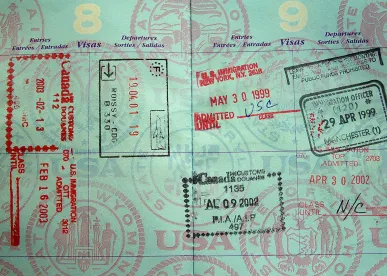On July 22, 2021, the Biden administration extended travel restrictions affecting travel between U.S., Canadian, and Mexican land ports of entry until August 21, 2021. In so doing, the Biden administration confirmed that it is “maintaining cross-border activities with Canada and Mexico that support health security, trade, commerce, supply security, and other essential activities while taking critical steps to protect [U.S.] citizens and to curb spread of the virus.”
The restrictions prohibit all “non-essential” travel to the United States in order to prevent the spread of COVID-19. U.S. Customs and Border Protection (CBP) defines “non-essential travel” as travel for “tourism purposes (e.g., sightseeing, recreation, gambling, or attending cultural events).” “Essential travel” includes, among other categories, U.S. citizens and lawful permanent residents returning to the United States, individuals traveling for medical purposes, and individuals traveling to work in the United States.
The Federal Register confirms that the current travel restrictions do not apply to “air, freight rail, or sea travel …, but [do] apply to passenger rail, passenger ferry travel, and pleasure boat travel,” as well as all land crossings.
Status of Travel Across U.S.-Canada and U.S.-Mexico Land Borders
Notably, the Biden administration’s decision to extend travel restrictions along the U.S.-Canada and U.S-Mexico borders contrasts with measures announced by the Canadian government on July 19, 2021, confirming that fully vaccinated U.S. citizens and lawful permanent residents would be permitted to enter Canada without the need to quarantine. Effective August 9, 2021, eligible travelers will be able to enter Canada regardless of the purpose of the travel, although travelers must provide proof of vaccination prior to seeking admission into the country. Canada initially announced plans to ease border restrictions in June 2021. (For additional information, please refer to the U.S. Embassy’s website.)
While the relaxation of restrictions by the Canadian government signals a positive advancement, businesses may want to recognize that the United States has not implemented parallel measures and does not show signs of doing so in the immediate future. Travelers returning to the United States through land ports of entry may want to remain cognizant of the fact that restrictions remain in effect until at least August 21, 2021.
Countries Subject to COVID-19 Travel Bans
To date, the United States continues to restrict travel from 33 countries worldwide, including Brazil, China, India, Iran, Ireland, the Schengen Area (26 countries), South Africa, and the United Kingdom. While specific exemptions exist for U.S. citizens and lawful permanent residents, including their immediate family members (i.e., spouses, unmarried children under the age of 21, and parents), the travel restrictions will remain in effect until lifted by President Biden.
Continued Consular Delays in Countries Subject to Travel Bans
Delays continue at U.S. consular posts worldwide, both in countries subject to COVID-19 travel bans and countries that are not subject to U.S. travel restrictions. Despite progress toward the resumption of routine visa services in general, U.S. consular posts worldwide continue to face issues due to persistent COVID-19–related challenges, including processing delays, appointment availability, personnel shortages, and local restrictions. As the situation evolves, and as some countries lift restrictions more quickly than others, disparities in consular processing and appointment scheduling have emerged largely based on geographic location. In addition, consulates appear more reluctant to schedule appointments for “third-country nationals” or persons not from the country where an application is submitted, at least without further evidence of ties to the home country (e.g., familial relationships, business and economic ties, and other ties).
Some U.S. embassies and consulates, although operational, are prioritizing applications based on level of importance, with applications for nonimmigrant work visas receiving lower priority than other visa categories. Given the circumstances, unless applicants for nonimmigrant work visas can demonstrate an “urgent” need to travel for business (e.g., a need to travel within 10 days of an appointment or visa approval), embassies and consulates may be reluctant to grant emergency appointments.
Entry Into United States Requires a Negative COVID-19 Test Result
The United States continues to require that all international air travelers, including U.S. citizens, provide negative COVID-19 test results at least three days prior to boarding flights to the United States. This is a requirement for all travelers, regardless of vaccination history. The United States has not imposed additional travel restrictions and/or travel requirements in response to rising vaccination rates worldwide.
Key Takeaways for Employers
Travelers and businesses alike may want to remember that the situation worldwide remains dynamic. Businesses may continue to observe variations in the travel and consular service experiences of their employees, with some persons more likely to secure visas and/or travel internationally than others.




 />i
/>i

